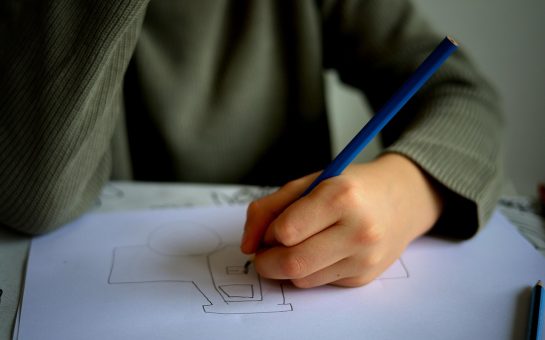Children in foster care may have been through several instances of instability and trauma, which can lead to them facing unique challenges when it comes to their education.
This can include frequent changes in schools, a lack of consistent support from adults, and difficulties forming healthy attachments. Despite these obstacles, it’s crucial to support the academic success of children in foster care in order to provide them with the best chance of a successful future.
Providing a stable and supportive learning environment
The foundation for academic success in foster children is to provide them with a stable, supportive environment in which to learn.
All efforts should be made to keep foster children in the same school for as long as possible, and they should be provided with consistent adult figures, such as teachers or mentors, who can provide guidance and support.
Along with this, it is worth providing them with additional resources such as extra tutoring, counselling, and academic support programmes designed to help them overcome any difficulties or gaps in learning. You can find out more about fostering and providing a stable, supportive environment at thefca.co.uk.
Addressing emotional and behavioural issues
Many foster children have experienced some kind of trauma. Even in foster children who do not have a background of abuse or neglect, the act of being removed from their birth family and placed in foster care can be traumatic in itself, even when done in the best interests of the child. Therefore, it’s crucial that, as a foster carer, you are mindful of this, and aware of the ways that this trauma can manifest.
Often, trauma in children can show up in ways that can make it difficult for them to do well and succeed in school, such as a distrust of authority figures, trouble forming healthy attachments, or problems with focusing.
It is important to prioritise your foster child’s mental health and ensure that they have access to resources to help them overcome the trauma and how it has affected them, such as counselling. This gives them a chance to develop healthier coping strategies and learn how to manage their behaviours and emotions in a healthier, more productive way.
Supporting your foster child
As a foster carer, there are lots of things that you can do to support your foster child in their academic success and make it easier for them to catch up and do well in school. At the heart of this is providing a safe, nurturing home environment where they feel supported and protected.
It’s also crucial to get to know your child so that you have a better understanding of where they are at academically and can set realistic expectations for them. Encourage education in a way that feels natural and exciting for your foster child by getting to know them and how they learn new things.
Get involved in their education, take an interest in them and provide plenty of positive reinforcement when they do well; this can help them to thrive academically.
Some ideas for engaging foster children in learning
As a foster carer, there are several things that you can do to help your foster child engage in learning and support their academic success.
Build relationships
Foster children may struggle with trust and attachment, especially if they come from a background of trauma or abuse. So, as a foster carer, it’s crucial to build a positive relationship with them.
This may take some time, but ultimately it will contribute to the safe environment you provide and will make it easier for you to be in a position of support when it comes to their learning. Take the time to get to know them, show an interest in their inner experiences, and be supportive.
Create a sense of belonging
After moving schools more than once, along with everything else going on in their lives, it’s not uncommon for foster children to feel left out in the classroom. Because of this, it’s crucial to work to facilitate a sense of belonging for them, both at home and in school. Consider allowing them to participate in extra-curricular activities to make more friends from school and speak to teachers to accommodate for their needs.
Establish a consistent routine
Many children feel safer and calmer when they have a consistent routine in place. As a foster carer, it’s important to be aware of the fact that your foster child may have experienced a lot of uncertainty and change in their short life so far.
A consistent routine for home, school, and studying can be very helpful. With a regular time set aside for homework and study, a consistent routine for extracurricular activities, and plenty of structure and predictability, you are laying the foundation for academic success.
Use hands-on learning
Don’t forget that learning doesn’t just happen in school. At home, there are several ways you can use hands-on learning to teach your foster child something new. Science experiments, art projects, and cooking can all be fun and educational. Even if you’re doing something that isn’t related to school, it can help build the child’s confidence, making school easier.
Use technology
Technology has become a vital and very valuable tool when it comes to engaging children in learning. Consider providing technology that they can use to access online resources, play interactive educational games, and learn more about the topics that they are interested in.
Provide individualised support
Some foster children may have different needs compared to other students, which is why it’s so important to ensure that they have access to individualised support. You may consider involving a private tutor, for example, to help your child with the topics that they struggle with.
Children in foster care often face academic challenges due to the things they have experienced in their lives.
From trauma that impacts their ability to learn, to lots of change and uncertainty, keeping up in school can be a struggle. As a foster carer, understanding this, and providing the right support allows you to help foster children turn things around and do well academically.
Photo by Kimberly Farmer on Unsplash




